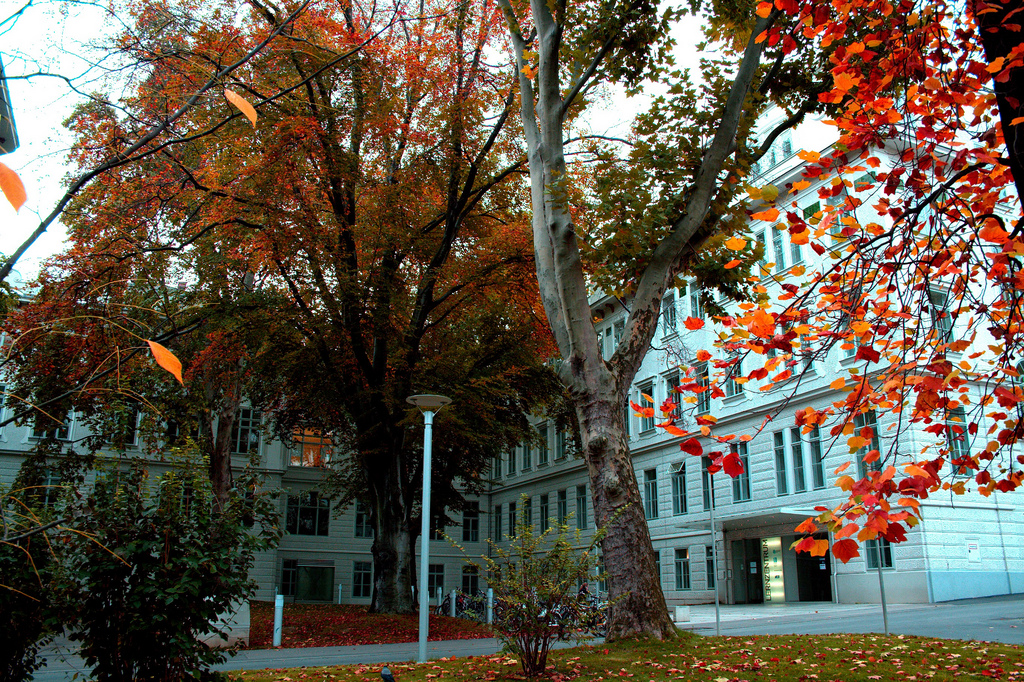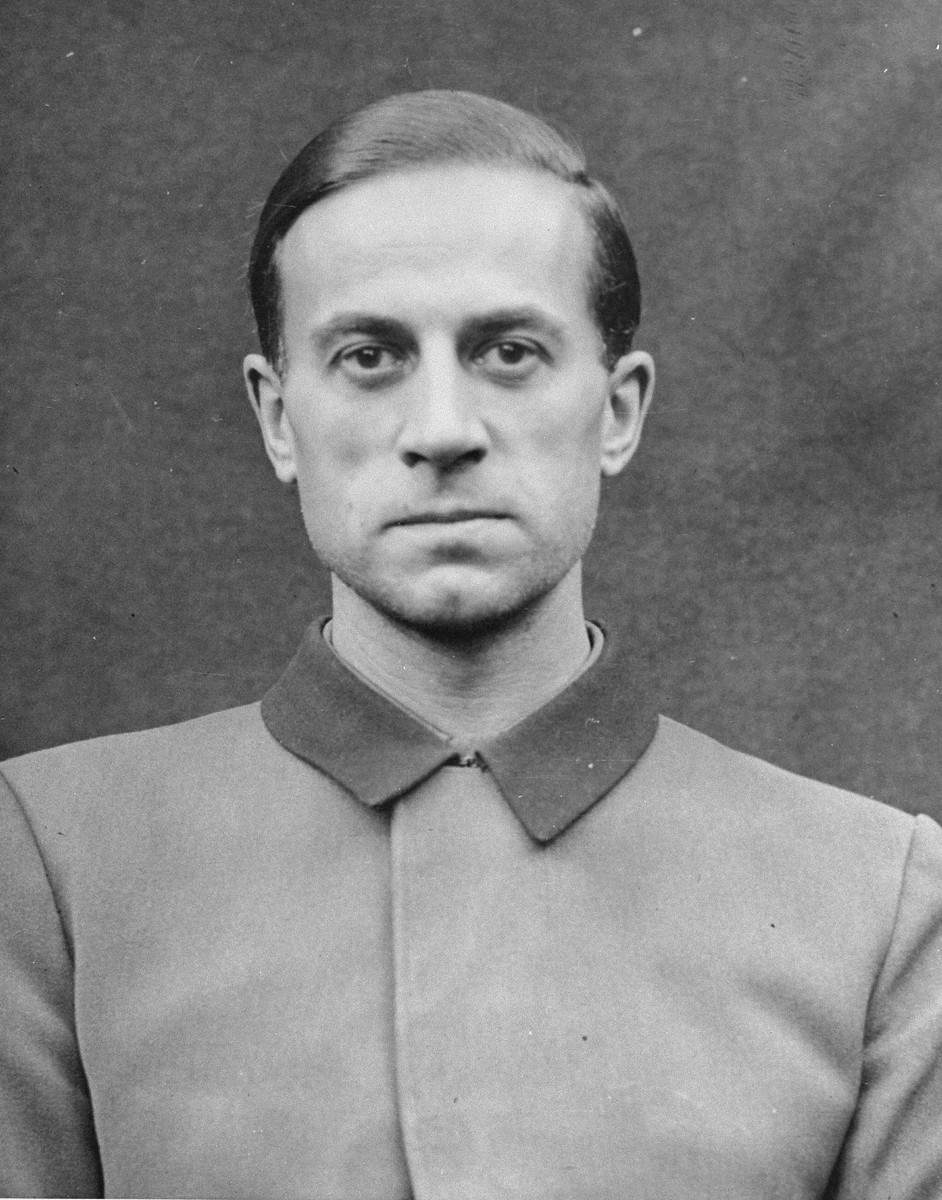|
Markus Müller (physician)
Markus Müller (born August 23, 1967 in Klagenfurt) is an Austrian pharmacology, pharmacologist. In 2015 he began serving as rector (academia), Rector of the Medical University of Vienna. Early life Müller graduated from high school in 1985 at the Theresianum in Vienna and studied medicine at the University of Vienna. He earned his medical doctor in 1993 with ''sub auspiciis Praesidentis'' honors. Career He specialized in internal medicine at Vienna General Hospital from 1993 to 2000. In 1995, Müller was a visiting researcher at the ''Laboratory for Diabetes Research'' in Gothenburg. From 2000 to 2001, he was guest professor at the University of Florida. In 2004, he was appointed full professor and head of the department of clinical pharmacology at the Medical University of Vienna. Müller has published some 200 research papers, in outlets such as the ''New England Journal of Medicine''. In 2015 Müller was elected Rector of the Medical University of Vienna. Two years l ... [...More Info...] [...Related Items...] OR: [Wikipedia] [Google] [Baidu] |
Medical University Of Vienna
The Medical University of Vienna (MedUni Wien, German language, German: ''Medizinische Universität Wien'') is a public university located in Vienna, Austria. It is the direct successor to the faculty of medicine at the University of Vienna, founded in 1365 by Rudolf IV, Duke of Austria. As one of the List of oldest universities in continuous operation, oldest medical schools in the world, it is the oldest in the German-speaking countries, and was the second medical faculty in the Holy Roman Empire, after the Charles University of Prague. The Medical University of Vienna is the largest medical organisation in Austria, as well as one of the top-level research institutions in Europe and provides Europe's largest hospital, the Vienna General Hospital, with all of its medical staff. It consists of 31 university clinics and clinical institutes, and 12 medical-theoretical departments, which perform around 48,000 Surgery, operations each year. The Vienna General Hospital has about 100,00 ... [...More Info...] [...Related Items...] OR: [Wikipedia] [Google] [Baidu] |
Clinical Pharmacology
Clinical pharmacology is "that discipline that teaches, does research, frames policy, gives information and advice about the actions and proper uses of medicines in humans and implements that knowledge in clinical practice". Clinical pharmacology is inherently a translational discipline underpinned by the basic science of pharmacology, engaged in the experimental and observational study of the disposition and effects of drugs in humans, and committed to the translation of science into evidence-based therapeutics. It has a broad scope, from the discovery of new target molecules to the effects of drug usage in whole populations. The main aim of clinical pharmacology is to generate data for optimum use of drugs and the practice of 'evidence-based medicine'. Clinical pharmacologists have medical and scientific training that enables them to evaluate evidence and produce new data through well-designed studies. Clinical pharmacologists must have access to enough patients for clinical c ... [...More Info...] [...Related Items...] OR: [Wikipedia] [Google] [Baidu] |
People From Klagenfurt
The term "the people" refers to the public or common mass of people of a polity. As such it is a concept of human rights law, international law as well as constitutional law, particularly used for claims of popular sovereignty. In contrast, a people is any plurality of persons considered as a whole. Used in politics and law, the term "a people" refers to the collective or community of an ethnic group or nation. Concepts Legal Chapter One, Article One of the Charter of the United Nations states that "peoples" have the right to self-determination. Though the mere status as peoples and the right to self-determination, as for example in the case of Indigenous peoples (''peoples'', as in all groups of indigenous people, not merely all indigenous persons as in ''indigenous people''), does not automatically provide for independent sovereignty and therefore secession. Indeed, judge Ivor Jennings identified the inherent problems in the right of "peoples" to self-determination, as i ... [...More Info...] [...Related Items...] OR: [Wikipedia] [Google] [Baidu] |
Austrian Pharmacologists
Austrian may refer to: * Austrians, someone from Austria or of Austrian descent ** Someone who is considered an Austrian citizen * Austrian German dialect * Something associated with the country Austria, for example: ** Austria-Hungary ** Austrian Airlines (AUA) ** Austrian cuisine ** Austrian Empire ** Austrian monarchy ** Austrian German (language/dialects) ** Austrian literature ** Austrian nationality law ** Austrian Service Abroad ** Music of Austria **Austrian School of Economics * Economists of the Austrian school of economic thought * The Austrian Attack variation of the Pirc Defence chess opening. See also * * * Austria (other) * Australian (other) Australian(s) may refer to: Australia * Australia, a country * Australians, citizens of the Commonwealth of Australia ** European Australians ** Anglo-Celtic Australians, Australians descended principally from British colonists ** Aboriginal Aus ... * L'Autrichienne (other) {{disambig Lan ... [...More Info...] [...Related Items...] OR: [Wikipedia] [Google] [Baidu] |
21st-century Austrian Physicians
File:1st century collage.png, From top left, clockwise: Jesus is crucified by Roman authorities in Judaea (17th century painting). Four different men (Galba, Otho, Vitellius, and Vespasian) claim the title of Emperor within the span of a year; The Great Fire of Rome (18th-century painting) sees the destruction of two-thirds of the city, precipitating the empire's first persecution against Christians, who are blamed for the disaster; The Roman Colosseum is built and holds its inaugural games; Roman forces besiege Jerusalem during the First Jewish–Roman War (19th-century painting); The Trưng sisters lead a rebellion against the Chinese Han dynasty (anachronistic depiction); Boudica, queen of the British Iceni leads a rebellion against Rome (19th-century statue); Knife-shaped coin of the Xin dynasty., 335px rect 30 30 737 1077 Crucifixion of Jesus rect 767 30 1815 1077 Year of the Four Emperors rect 1846 30 3223 1077 Great Fire of Rome rect 30 1108 1106 2155 Boudican revolt ... [...More Info...] [...Related Items...] OR: [Wikipedia] [Google] [Baidu] |
Academic Staff Of The University Of Vienna
An academy (Attic Greek: Ἀκαδήμεια; Koine Greek Ἀκαδημία) is an institution of tertiary education. The name traces back to Plato's school of philosophy, founded approximately 386 BC at Akademia, a sanctuary of Athena, the goddess of wisdom and skill, north of Athens, Greece. The Royal Spanish Academy defines academy as scientific, literary or artistic society established with public authority and as a teaching establishment, public or private, of a professional, artistic, technical or simply practical nature. Etymology The word comes from the ''Academy'' in ancient Greece, which derives from the Athenian hero, ''Akademos''. Outside the city walls of Athens, the gymnasium was made famous by Plato as a center of learning. The sacred space, dedicated to the goddess of wisdom, Athena, had formerly been an olive grove, hence the expression "the groves of Academe". In these gardens, the philosopher Plato conversed with followers. Plato developed his sessions ... [...More Info...] [...Related Items...] OR: [Wikipedia] [Google] [Baidu] |
Living People
Purpose: Because living persons may suffer personal harm from inappropriate information, we should watch their articles carefully. By adding an article to this category, it marks them with a notice about sources whenever someone tries to edit them, to remind them of WP:BLP (biographies of living persons) policy that these articles must maintain a neutral point of view, maintain factual accuracy, and be properly sourced. Recent changes to these articles are listed on Special:RecentChangesLinked/Living people. Organization: This category should not be sub-categorized. Entries are generally sorted by family name In many societies, a surname, family name, or last name is the mostly hereditary portion of one's personal name that indicates one's family. It is typically combined with a given name to form the full name of a person, although several give .... Maintenance: Individuals of advanced age (over 90), for whom there has been no new documentation in the last ten ... [...More Info...] [...Related Items...] OR: [Wikipedia] [Google] [Baidu] |
1967 Births
Events January * January 1 – Canada begins a year-long celebration of the 100th anniversary of Canadian Confederation, Confederation, featuring the Expo 67 World's Fair. * January 6 – Vietnam War: United States Marine Corps and Army of the Republic of Vietnam troops launch ''Operation Deckhouse Five'' in the Mekong Delta. * January 8 – Vietnam War: Operation Cedar Falls starts, in an attempt to eliminate the Iron Triangle (Vietnam), Iron Triangle. * January 13 – A military coup occurs in Togo under the leadership of Étienne Eyadema. * January 15 – Louis Leakey announces the discovery of pre-human fossils in Kenya; he names the species ''Proconsul nyanzae, Kenyapithecus africanus''. * January 23 ** In Munich, the trial begins of Wilhelm Harster, accused of the murder of 82,856 Jews (including Anne Frank) when he led German security police during the German occupation of the Netherlands. He is eventually sentenced to 15 years in prison. ** Milton Keynes in England is ... [...More Info...] [...Related Items...] OR: [Wikipedia] [Google] [Baidu] |
American College Of Clinical Pharmacology
The American College of Clinical Pharmacology® (ACCP) is a national organization of clinical pharmacology healthcare professionals who seek to advance clinical pharmacology. History and mission In the 1960s, a group of physicians formulated the concept of an organization dedicated to a new branch of pharmacology that dealt with the effectiveness and safety of drugs in humans. As a result of their efforts, the American College of Clinical Pharmacology (ACCP) was founded on September 11, 1969. The mission is to improve health by optimizing therapeutics and to provide leadership and education that enables the generation, integration and translation of scientific knowledge to optimize research, development and utilization of medication. Structure ACCP is governed by a Board of Regents elected by ACCP Members. The Board is advised by a network of ACCP committees. Membership Levels of membership in ACCP are Retired, Student, Member and Fellow (FCP). Fellowship is the organizatio ... [...More Info...] [...Related Items...] OR: [Wikipedia] [Google] [Baidu] |
Nazi
Nazism (), formally named National Socialism (NS; , ), is the far-right politics, far-right Totalitarianism, totalitarian socio-political ideology and practices associated with Adolf Hitler and the Nazi Party (NSDAP) in Germany. During Hitler's rise to power, it was frequently referred to as Hitler Fascism () and Hitlerism (). The term "neo-Nazism" is applied to other far-right groups with similar ideology, which formed after World War II, and after Nazi Germany collapsed. Nazism is a form of fascism, with disdain for liberal democracy and the parliamentary system. Its beliefs include support for dictatorship, fervent antisemitism, anti-communism, anti-Slavism, anti-Romani sentiment, scientific racism, white supremacy, Nordicism, social Darwinism, homophobia, ableism, and the use of eugenics. The ultranationalism of the Nazis originated in pan-Germanism and the ethno-nationalist ''Völkisch movement, Völkisch'' movement which had been a prominent aspect of German nationa ... [...More Info...] [...Related Items...] OR: [Wikipedia] [Google] [Baidu] |
Nuremberg Code
The Nuremberg Code () is a set of research ethics, ethical research principles for human experimentation created by the court in ''Doctors' trial, U.S. v Brandt'', one of the Subsequent Nuremberg trials that were held after the World War II, Second World War. Though it was articulated as part of the court's verdict in the trial, the Code would later become significant beyond its original context; in a review written on the 50th anniversary of the ''Brandt'' verdict, Jay Katz writes that "a careful reading of the judgment suggests that [the authors] wrote the Code for the practice of human experimentation whenever it is being conducted." Background The origin of the Code began in pre–World War II German politics, particularly during the 1930s and 1940s. Starting in the mid-1920s, German physicians, usually proponents of racial hygiene, were accused by the public and the medical society of Unethical human experimentation, unethical medical practices. The use of racial hygiene was ... [...More Info...] [...Related Items...] OR: [Wikipedia] [Google] [Baidu] |



